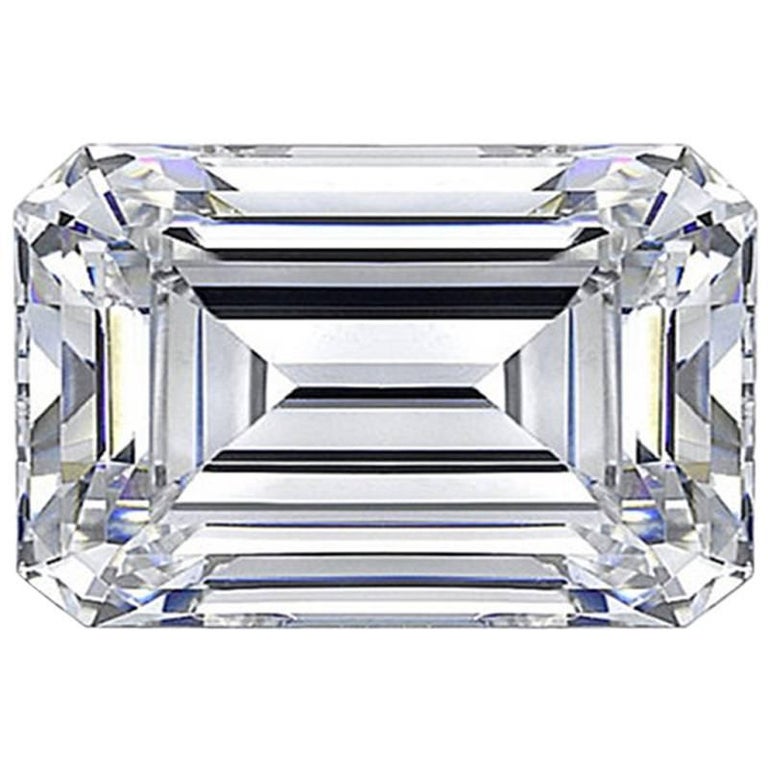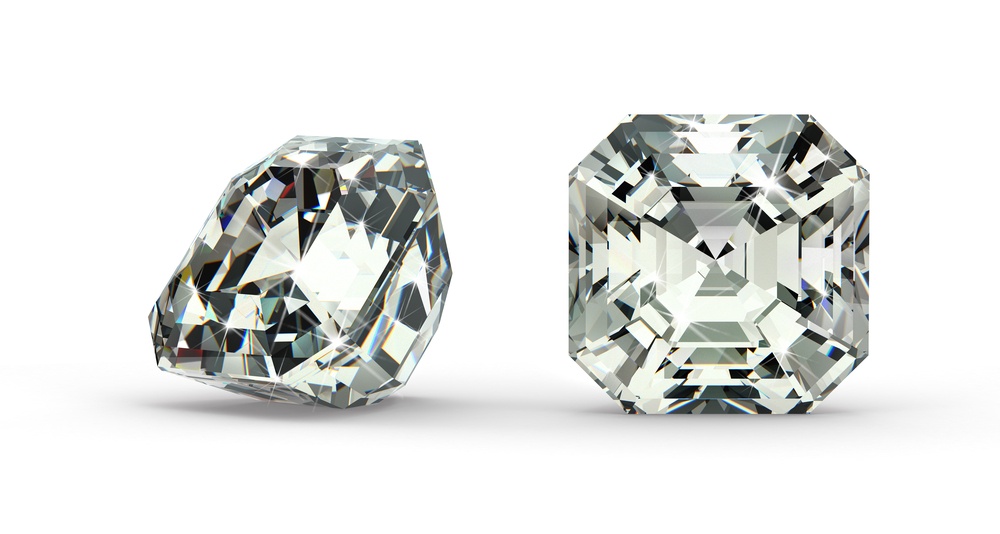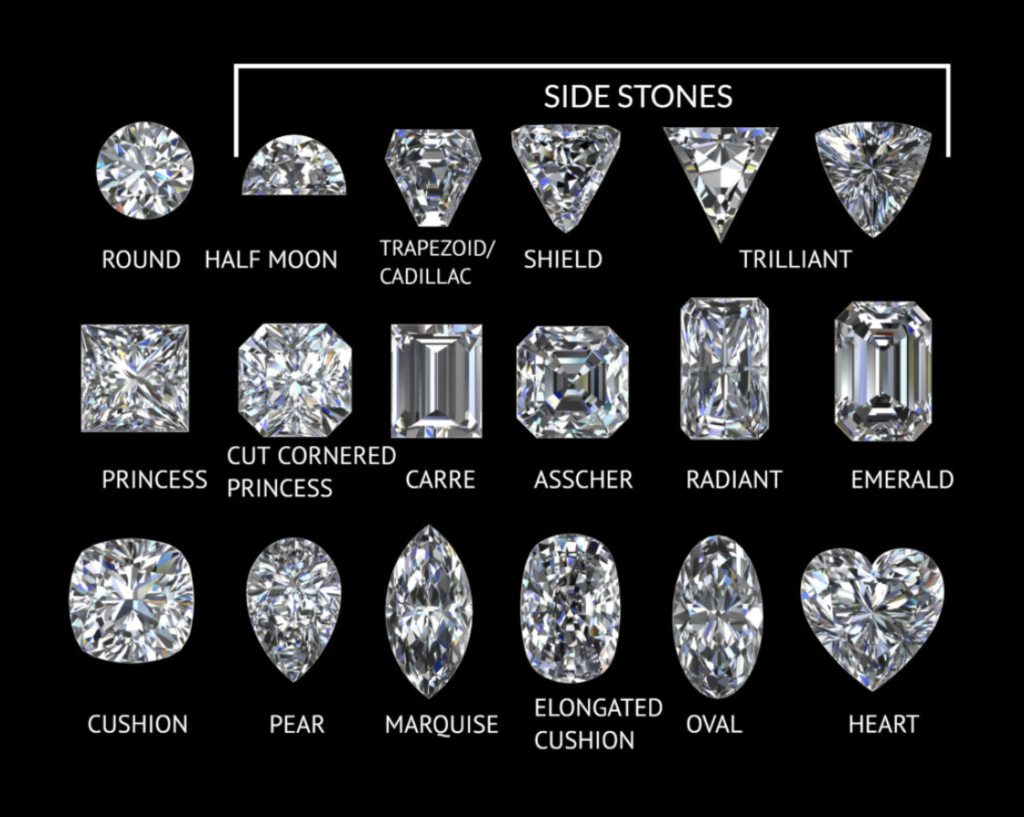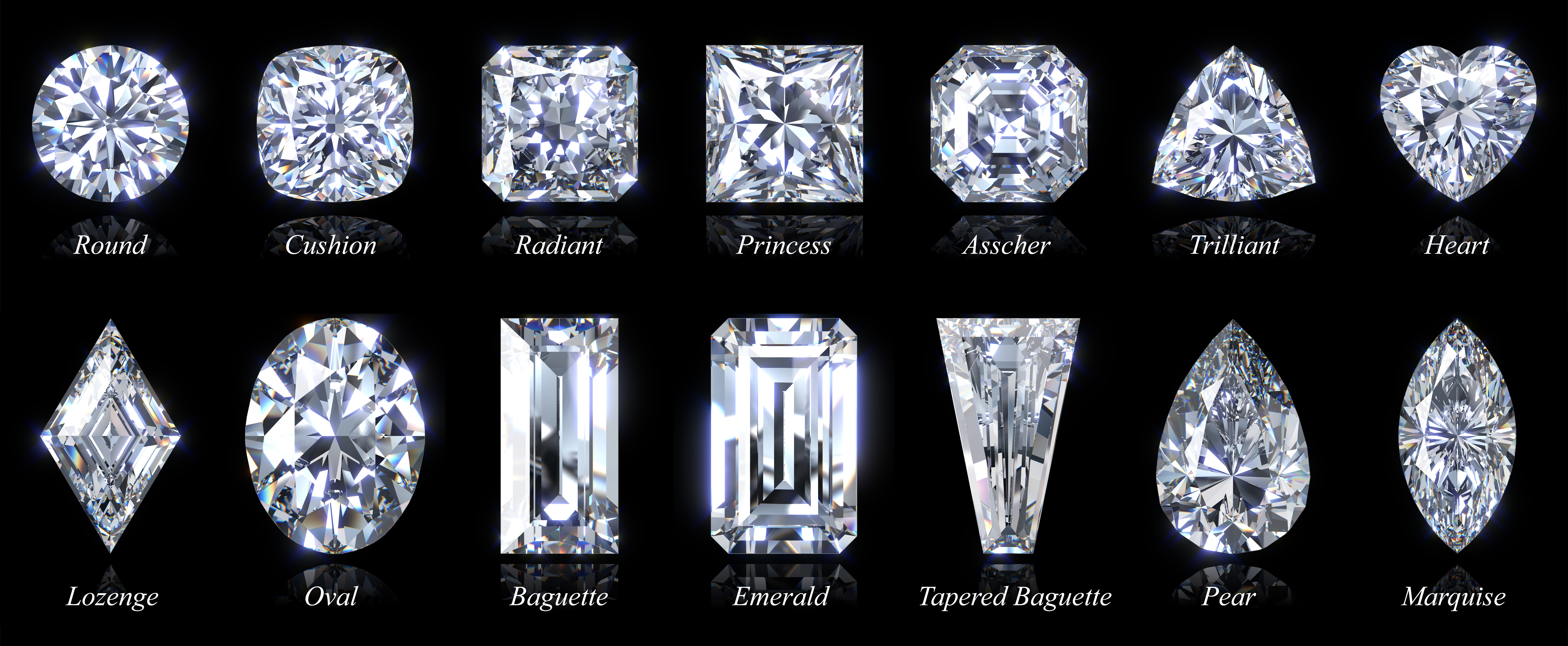Types of Diamond Cuts How to Choose The Right Shape

Diamond Cut cushion cut a square or rectangular cut with rounded
How Diamond Shapes Affect Price. To look at this, we chose a few benchmark carat sizes: 0.5, 0.7, 1.0, 1.2, 1.5, and 2.0 carats. For each size, we collected average prices for each diamond shape for G color, VS2 diamonds from Blue Nile's inventory. Round diamond averages are based on "Excellent" cut diamonds. Diamond price chart with the lowest.

Types of Diamond Cuts How to Choose The Right Shape
A diamond's shape refers to the general silhouette of the stone and is not to be confused with cut, or the stone's facet arrangement. For more information on how to differentiate between diamond shape and cut, go here. Read on for GIA's Diamond Shape buyers guide to some of the most frequently seen diamond shapes, and their defining.

GIA Certified 1.02 Carat F Color SI1 Clarity CutCornered Rectangular
November 8, 2022 by July A rectangle is a four-sided polygon with two pairs of parallel sides. It can also be defined as a parallelogram with four right angles. A diamond is a quadrilateral with two pairs of parallel sides, but its sides are not all the same length. So, a diamond shape is not a rectangle.
.jpg?mode=max)
RECTANGULAR DIAMOND RING OF 3.03 CARATS WITH GIA REPORT, Christie’s
Diamonds are a particular type of quadrilateral known as a rhombus, specifically one with equal-length sides. Learn the difference between diamonds and other rhombuses, and how to recognize.

Geometry Diamond Shape Drawing, diamond, gemstone, angle, rectangle png
A rhombus is sometimes called a rhomb or a diamond. The Parallelogram A parallelogram has opposite sides parallel and equal in length. Also opposite angles are equal (angles "A" are the same, and angles "B" are the same). NOTE: Squares, Rectangles and Rhombuses are all Parallelograms! Example:

GIA 1.53ct F/VVS2 Modified Rectangular Brilliant (Radiant Cut) Loose
Diamond shape refers to the geometric appearance of a diamond. Diamond shapes are categorized into two groups: round diamonds and fancy shape diamonds. Round brilliant diamonds are the most traditional diamond shape. Tiffany fancy shape diamonds include princess, cushion, emerald, oval, pear, marquise, heart and our exclusive Tiffany True® diamond.

What's The Difference Between A Square and Rectangular Asscher Cut Diamond?
A diamond that is square or rectangular and consists of facets that are parallel to each other. The facets are cut on all four sides of the diamond, with a flat surface on top. These facets look like a set of steps descending into the diamond. Step cut diamonds have fewer facets to reflect light, so they aren't as sparkly as brilliant-cut diamonds.

An Introduction To Diamond Shapes Astwood Dickinson
Diamond shape refers to the geometric appearance of a diamond. Diamond shapes are categorised into two groups: round diamonds and fancy shape diamonds. Round brilliant diamonds are the most traditional diamond shape. Tiffany fancy shape diamonds include princess, cushion, emerald, oval, pear, marquise, heart and our exclusive Tiffany True® diamond.

Rectangle radiant cut center diamond with round brilliant cut side
Shape describes a diamond's basic outline when viewed face up (round, square, oval, etc.). Cut, or cutting style, refers to how the diamond's facets are arranged. For example, the most common cutting style for diamond shapes is the brilliant cut with an arrangement of 57 or 58 facets designed to maximize sparkle.
6 Engagement Ring Diamond Shapes to Know Ring Concierge
Length to width ratio: As noted with asscher cuts, a length to width ratio of 1.0-1.05 offers a square shape to the naked eye. For a rectangular princess cut, 1.5-2.0 is a suitable range. Pro Tip: To prevent damage to the corners, a princess cut diamond should be set with prongs on all four corners.
Exploring the Basics Diamond in a Rectangle Tamarinis
The word "diamond" is not a formal mathematical term; some people take it as equivalent to "rhombus", while others equate it to "kite", or treat it as either a "tilted square" or any rhombus oriented so that the long diagonal is vertical ("standing on a point").

Set Of White Diamonds With Rectangle Cuts Stock Illustration Download
A baguette-cut diamond is an elongated, thin, rectangular-shaped diamond. These gemstones are commonly lengthy and slim - but can sometimes be almost square in shape. On that note, baguettes usually have a 5:1 length-to-width ratio. Some baguette-cut diamonds can have straight edges that form a perfect rectangle, while some feature tapered.

Fourteen popular diamond shapes with titles isolated on black
The diamond itself has a rectangular shape, but the facets catch the light and make the diamond look like a never-ending hall of mirrors. The ideal ratio for emerald cut diamonds ranges from 1.3 to 1.45. Marquise: Marquise diamonds have a breathtaking look, with the long elliptical diamond giving your engagement ring a timeless look. The ideal.

Diamond Cut Types Diamonds Cuts Chart for Clarity, Color
These diamonds can be rectangular or squared in edges. Rectangular radiant cut stones have ratios between 1.05 and 1.50 while squared stones have ratios between 1.00 and 1.05. Radiant cut diamonds have about 70 facets. Due to its unique shape, radiant cut offers depth and brilliance comparable to princess and emerald cuts. That is why this.

GIA 0.50 Carat Cornered Rectangular Mixed Cut M I2 Cashinn Diamonds
The radiant cut diamond is the first rectangular cut to have a complete brilliant-cut facet pattern applied to both the crown and pavilion, creating a vibrant and lively diamond. The modified square shape is a nice bridge between a cushion and a princess cut, and for that reason looks beautiful set with both rounded or square cornered diamonds.

A 1.02 Carat CutCornered Rectangular Diamond, G Color, VS1 Clarity
The term "diamond shape" refers to the physical and visual shape of the diamond. Each shape has unique attributes influencing the diamond's overall appearance and brilliance. When purchasing a diamond, customers typically consider its shape as one of the primary factors.